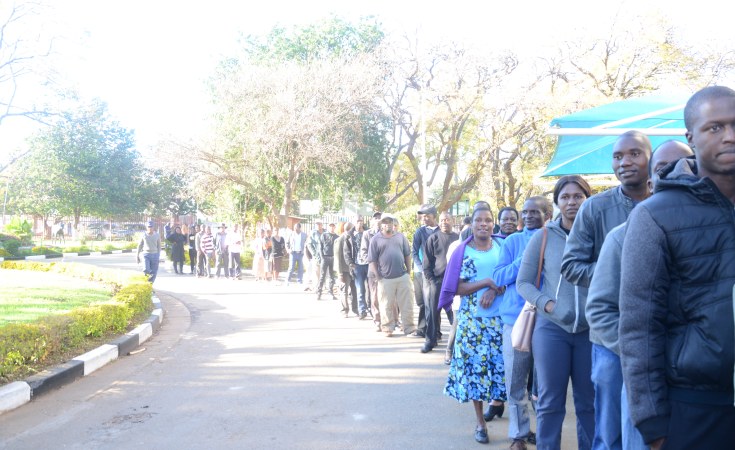ZIMBABWE's July 2023 general election will be held under a five-year systematic, brutal crackdown on human rights, restrictions on political opposition gatherings, violent suppression of protests and criminalization of state critics, Amnesty International has said.
In a statement released Wednesday, Amnesty International said since the inception of the new dispensation, the rights to freedom of expression, association, and peaceful assembly have been relentlessly suppressed amid a sustained crackdown against those who have demanded accountability from the government.
"What we have seen in Zimbabwe over the past five years amounts to a brutal crackdown on human rights, especially the rights to freedom of expression, peaceful assembly and association.
"Respect for socio-economic rights has also declined dramatically, leaving many people in abject poverty with no means to put food on the table," Southern Africa's Amnesty International deputy director Khanyo Farisè said.
Farise added that the Zimbabwean authorities have revealed their brazen contempt for basic freedoms and shown that there is no space for dissent in the 'second republic'.
The statement added that the police had repeatedly resorted to excessive use of force to suppress human rights, including the right to peaceful assembly.
The human rights body stated that organized protests against allegations of corruption, journalists, members of the political opposition and human rights activists have all been targeted for criticizing the government.
"Almost a fortnight ago, President Emmerson Mnangagwa signed into law the Criminal Law Codification and Reform Amendment Bill, 2022, commonly referred to as the "Patriotic Bill", further criminalizing dissent for among others, "upsetting" a constitutionally elected government.
The human rights watchdog added that authorities have increasingly targeted leaders of the political opposition, journalists and activists by weaponizing the law among them Hopewell Chin'ono, a prominent journalist who exposed a multimillion-dollar Covid-19-related corruption case, and Jacob Ngarivhume, a political activist who called for a nationwide protest against allegations of corruption on July 31, 2020.
The two were arrested and detained in July 2020 to stifle their criticism.
Another politician and opposition Member of Parliament Jacob Sikhala was convicted on charges of "obstructing justice" and handed a six-month suspended sentence.
Sikhala is still languishing in jail for other charges.
Zimbabwean author and activist Tsitsi Dangarembga and fellow protester Julie Barnes were each convicted of "inciting violence" after participating in the July 20, 2020 protests against economic hardship in September 2020 and handed a fine of ZW$70,000.
They were each handed a six-month suspended sentence, which they later successfully challenged in court.
On June 10, 2020, three ex-MDC-Alliance youth leaders, now members of the main opposition Citizens Coalition for Change, Joana Mamombe, Cecillia Chimbiri and Netsai Marova, were arrested and charged with falsifying their abduction and torture at the hands of suspected state security agents.
They were prosecuted for three years, before eventually being acquitted earlier this month, apart from Netsai Marova, who went into exile before the trial was concluded.
"Over the past five years, the Zimbabwean authorities have demonstrated little or no respect for human rights and have repeatedly flouted the rule of law.
"As political campaigning enters full swing, the authorities must ensure that people are able to freely exercise their rights to freedom of expression, association and peaceful assembly. Authorities must respect, protect, promote and fulfil the human rights of everyone before, during and after the election," said Farisè.
President Emerson Mnangagwa's rise to power was against the background of the killings of protesters following post-election violence on August 1, 2018, after the July 31, 2018 election.
Six people were killed, and 35 others injured, after soldiers fired live ammunition at people fleeing post-election protests in Harare.
Although the President has called for peace during the election period, fears are high the country might be dominated by violence.
Police on Monday told observer missions in Harare that they are ready for the elections with human resources and vehicles available to monitor and prevent any incidents of violence.


